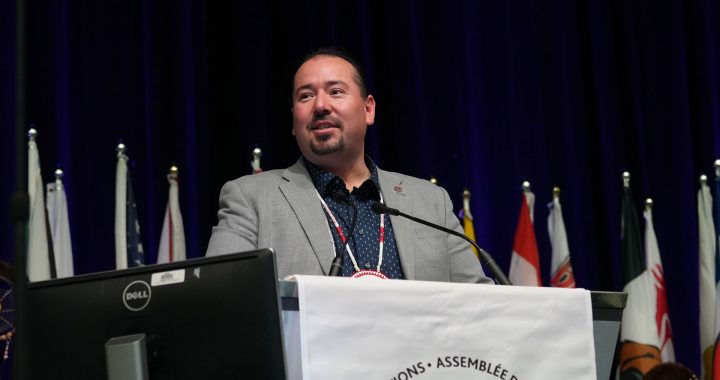The atrocities, the death, the loss and the silence of residential schools that Indigenous Peoples knew about for so long are finally known by all, Canada’s Governor General told a crowd of survivors and their family members in Kamloops, B.C. on Monday.
Gov. Gen. Mary Simon’s remarks came a year after ground-penetrating radar unearthed unmarked graves believed to hold the remains of 215 children who died at a former residential school near the city, a finding that led to the detection of hundreds of other similar sites across the country and triggered a national reckoning on Canada’s past and present relationship with Indigenous peoples.
Simon said while the unmarked graves of children found around residential schools in Canada have been called a discovery, for survivors, it’s the confirmation of First Nations experiences and knowledge passed down from generation to generation.
“It shouldn’t have taken that long, but finally, people know,” Simon said. “And knowing has transformed this community. People have made pilgrimages here to pay their respects, to say they’re sorry, to show their support.”
Simon spoke Monday at a memorial to mark the one-year anniversary of the announcement by the Tk’emlups te Secwepemc Nation that the graves were detected on the grounds of the former Kamloops Indian Residential School.
“It’s unimaginable that a place of learning was so cruel. It’s inexcusable that people could commit these atrocities or that people could stand silent as they were committed,” she said.
Simon, who is the first Indigenous person in Canada to hold the office of Governor General, said many members of the Tk’emlups te Secwepemc haven’t had time to grieve and she hoped that Monday’s event could contribute to their healing process.
“We mourn with you. We stand with you. We believe you,” she said.
Tk’emlups te Secwepemc Chief or Kukpi7 Rosanne Casimir told the crowd gathered at the Powwow Arbour that she hopes the events over the past year will lead to reconciliation for Indigenous Peoples.
“Non-Indigenous are now wanting to know about the real hidden history of this country. That we know is a good thing. Those conversations, as hard as they are, are going to lead to steps that we all need to make towards our collective history.”
While she said she’s disappointed the Pope will not be coming to Kamloops during a scheduled visit in July, she’s pleased he’ll be meeting with other Indigenous Peoples in Canada.
Pope Francis will make stops in Edmonton, Quebec City and Iqaluit during his visit.
Casimir was part of the delegation to the Vatican where the Pope apologized for the role of the Catholic Church in Canada’s residential school system.
Read More:
Stories of Survival – Kamloops and Marieval residential schools
Prime Minister Justin Trudeau was expected to attend Monday’s memorial event later in the day. He’ll meet with community members in the afternoon, view a traditional jingle dance performance and participate in a closed meeting with Casimir and members of her council.
The prime minister was also scheduled to participate in the memorial’s closing ceremonies slated to begin at about 7 p.m.
He faced widespread criticism last September when he did not attend national reconciliation day ceremonies in Kamloops.
Last May, Casimir said a war graves expert using ground-penetrating radar found what are believed to be the remains of up to 215 people buried at an unmarked site at the former school.
The detection of hundreds more suspected graves connected to residential schools across Canada would follow, amid a year of reckoning over the legacy of residential schools for Indigenous children.










